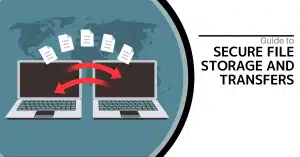IT for law firms enhances efficiency and security by streamlining case management and protecting sensitive data. Law firms increasingly rely on IT solutions to manage their operations.
These technologies help in automating routine tasks and ensuring data security. Efficient case management software organizes documents and tracks deadlines. Advanced cybersecurity measures protect confidential client information. Cloud-based services allow remote access to essential files, enhancing flexibility. IT support ensures systems run smoothly, minimizing downtime.
By integrating IT solutions, law firms can improve client service and operational efficiency. Investing in robust IT infrastructure is crucial for modern legal practices. This not only boosts productivity but also ensures compliance with legal standards. Effective IT management allows firms to focus more on legal work and less on administrative tasks.
Introduction To It In Legal Practice
In today’s fast-paced world, technology has become essential. Law firms are no exception. They rely on IT to improve efficiency and accuracy. This blog will explore the role of IT in legal practice.
The Digital Transformation
Digital transformation is changing how law firms operate. It involves integrating advanced technologies into their processes. This shift helps firms stay competitive and meet client demands.
- Automated document management
- Cloud-based storage
- Secure communication channels
Why Law Firms Need It
Law firms need IT solutions to handle complex tasks. They improve accuracy, efficiency, and security. Here are some key reasons:
- Streamlined workflows
- Enhanced data security
- Improved client communication
Adopting IT solutions helps law firms stay ahead. It ensures they provide the best service to their clients.
Case Management Software
Law firms need efficient tools to manage their cases. Case management software helps streamline tasks and improve productivity. It is essential for organizing client information, tracking deadlines, and enhancing communication.
Streamlining Case Workflow
Effective case management software simplifies complex workflows. It ensures all team members stay on the same page. This software automates routine tasks, reducing manual errors. Lawyers can focus more on case strategy and less on administrative work.
By using case management software, firms can easily track case progress. This improves transparency and accountability within the team.
Key Features To Look For
When choosing case management software, consider these essential features:
- Document Management: Store and organize all case-related documents in one place.
- Task Management: Assign and track tasks to ensure timely completion.
- Calendar Integration: Sync deadlines and appointments with your calendar.
- Time Tracking: Record billable hours accurately and efficiently.
- Client Communication: Secure and easy-to-use communication channels for clients.
- Reporting and Analytics: Generate reports to analyze case performance and firm productivity.
| Feature | Benefit |
|---|---|
| Document Management | Organize all documents in one place |
| Task Management | Ensure timely task completion |
| Calendar Integration | Sync deadlines with your calendar |
| Time Tracking | Record billable hours accurately |
| Client Communication | Secure communication channels |
| Reporting and Analytics | Analyze case performance |
Legal Research Tools
Legal research tools help law firms find case laws, statutes, and legal articles. These tools save time and improve accuracy. They are essential for any law firm wanting to stay competitive.
Accessing Legal Databases
Lawyers often use legal databases to find case laws and statutes. These databases provide a wealth of information. They make it easy to find relevant cases and legal precedents.
Some popular legal databases include:
- Westlaw: Comprehensive database with case laws, statutes, and legal journals.
- LexisNexis: Offers extensive legal research tools and news sources.
- Bloomberg Law: Provides access to primary and secondary legal resources.
These databases often come with powerful search functions. They help lawyers find precise information quickly. Law firms can also access historical legal documents.
Ai-powered Research
AI-powered research tools are revolutionizing legal research. These tools use artificial intelligence to analyze large volumes of data. They help lawyers find the most relevant information faster.
Some benefits of AI-powered research include:
- Improved accuracy in finding relevant case laws.
- Reduced time spent on legal research.
- Enhanced ability to predict case outcomes.
Popular AI-powered legal research tools are:
- ROSS Intelligence: Uses AI to deliver precise legal research results.
- Casetext: Combines AI with traditional research methods.
- Judicata: Offers in-depth legal analytics and research capabilities.
AI tools are transforming how law firms conduct legal research. They provide faster and more accurate results. This allows lawyers to focus more on their clients.
Document Management Systems
Law firms handle many documents. Efficient document management is crucial. A Document Management System (DMS) helps organize, store, and retrieve files. It ensures secure access to sensitive information.
Organizing Legal Documents
Legal documents need proper organization. Without it, finding files becomes hard. A DMS can categorize documents by case, client, or date. This helps lawyers save time. They can quickly locate necessary files.
Using tags and metadata enhances searchability. With tags, documents are easy to identify. Metadata provides extra details about files. Lawyers can access the right document fast.
Cloud Storage Solutions
Cloud storage offers many benefits. It provides secure, remote access to files. Lawyers can work from any location. This flexibility is vital for modern law firms.
Cloud storage also ensures data backup. Important documents are safe from loss. Many cloud services have encryption. This adds an extra layer of security.
Below is a table comparing different cloud storage solutions:
| Cloud Service | Storage Capacity | Security Features |
|---|---|---|
| Google Drive | 15 GB Free, Upgradable | Encryption, Two-Factor Authentication |
| Dropbox | 2 GB Free, Upgradable | Encryption, File Recovery |
| OneDrive | 5 GB Free, Upgradable | Encryption, Personal Vault |
Choosing the right cloud storage depends on your needs. Consider security, capacity, and cost. A good DMS integrates with your preferred cloud service.
Client Communication Platforms
Law firms need efficient ways to talk with clients. Good tools help make this easy. Two important tools are secure messaging and virtual meetings.
Secure Messaging
Secure messaging keeps conversations private. Only the right people can read them. This is very important for lawyers. They often talk about sensitive topics.
Secure messaging apps use encryption. Encryption changes the message into a secret code. Only the person with the key can read it. This keeps client data safe.
| Feature | Benefit |
|---|---|
| Encryption | Keeps messages private |
| Two-Factor Authentication | Adds extra security |
| Audit Logs | Tracks message history |
Virtual Meetings
Virtual meetings let lawyers meet clients online. This saves time and travel costs. It also allows more flexibility in scheduling.
Tools for virtual meetings include video calls and screen sharing. Video calls help make meetings more personal. Screen sharing lets lawyers show documents in real-time.
- Video calls create face-to-face interaction.
- Screen sharing helps review documents together.
- Recording meetings can keep important details.
Using these tools can improve client relationships. They make communication easier and more secure. Law firms should choose the best platforms for their needs.
E-discovery Technology
E-Discovery Technology is revolutionizing the legal industry. Law firms deal with vast amounts of electronic data. This can be emails, social media posts, and digital documents. E-Discovery helps law firms manage this data efficiently. This technology finds, preserves, and reviews electronic information. It makes legal processes faster and more accurate.
Automating Document Review
Automating document review saves time and reduces errors. Traditional document review is tedious and time-consuming. Automation uses artificial intelligence to speed up the process. It scans documents quickly and identifies relevant information.
Automated tools can categorize documents efficiently. They highlight key phrases and dates. This helps lawyers focus on important details. It also ensures no critical information is missed.
| Traditional Review | Automated Review |
|---|---|
| Manual sorting | Automated categorization |
| Time-consuming | Time-efficient |
| Prone to errors | Accurate and reliable |
Improving Accuracy
Using E-Discovery technology improves accuracy in legal processes. Manual review can lead to missed information. Automated tools ensure thorough examination of all documents. They use advanced algorithms to detect patterns and anomalies.
Accuracy is crucial in legal cases. One missed document can change the outcome. E-Discovery tools minimize this risk. They provide detailed reports and summaries. This helps lawyers build stronger cases.
- Thorough examination: No document goes unchecked.
- Pattern detection: Identifies trends and anomalies.
- Detailed reports: Summarizes key findings.
Law firms can trust E-Discovery for reliable and accurate results. It enhances their ability to provide top-notch legal services.
Cybersecurity In Law Firms
Law firms handle sensitive client data daily. Ensuring cybersecurity is paramount. Cyber threats are on the rise. Law firms must protect client information. This includes financial data, personal details, and confidential documents.
Protecting Client Data
Law firms must implement strong security measures. Use encryption for emails and files. Encrypting data keeps it safe from hackers. Regularly update software to fix vulnerabilities. Install antivirus programs to detect threats. Train staff on cybersecurity best practices. Staff should recognize phishing emails. Use strong, unique passwords for accounts. Implement two-factor authentication for extra security.
| Security Measure | Description |
|---|---|
| Encryption | Protects data in transit and at rest |
| Software Updates | Fixes security vulnerabilities |
| Antivirus Programs | Detects and removes malware |
| Employee Training | Educates staff on security practices |
| Strong Passwords | Prevents unauthorized access |
| Two-Factor Authentication | Adds an extra layer of security |
Compliance Requirements
Law firms must comply with cybersecurity regulations. Different regions have specific laws. In the US, follow HIPAA and GDPR for data protection. Non-compliance can result in heavy fines. Regularly audit your security measures. Ensure all practices meet legal requirements. Document your compliance efforts. This can help in case of an audit.
- Understand local cybersecurity laws.
- Conduct regular security audits.
- Document compliance efforts.
Invest in cybersecurity insurance. It can cover costs from data breaches. Cybersecurity in law firms is crucial. Protect your clients and your reputation.
Future Trends In Legal Tech
The legal industry is changing rapidly. New technologies are transforming how law firms operate. Staying updated is crucial for success. Here are some future trends in legal tech.
Blockchain For Legal Contracts
Blockchain technology is making waves in many industries. It offers secure, transparent, and immutable records. Law firms can use blockchain for smart contracts. These contracts are self-executing and reduce the need for intermediaries. They save time and cut costs.
Smart contracts also ensure compliance and accuracy. They automatically enforce the terms of an agreement. This reduces the risk of human error. With blockchain, law firms can offer clients a more efficient service.
Predictive Analytics
Predictive analytics is changing legal research and case outcomes. It uses data and algorithms to forecast future events. Law firms can predict case outcomes with greater accuracy. This helps in making informed decisions.
Predictive analytics can also identify trends and patterns. This can help in strategic planning. Law firms can allocate resources more effectively. They can also offer clients data-driven insights.
| Technology | Benefits |
|---|---|
| Blockchain | Secure, Transparent, Immutable |
| Smart Contracts | Self-Executing, Reduces Costs, Ensures Compliance |
| Predictive Analytics | Accurate Forecasts, Informed Decisions, Identifies Trends |
These trends are shaping the future of legal tech. Law firms must adapt to stay competitive. Embracing new technologies can lead to greater efficiency and better client service.
Frequently Asked Questions
What It Services Do Law Firms Need?
Law firms need secure data storage, case management software, and IT support. These services ensure smooth operations and protect sensitive information.
How Can It Improve Law Firm Productivity?
IT streamlines case management, automates routine tasks, and enhances communication. This boosts productivity and allows lawyers to focus on clients.
Why Is Cybersecurity Important For Law Firms?
Cybersecurity protects sensitive client data from breaches and ensures compliance with legal regulations. It builds client trust and safeguards reputation.
What Is Cloud Computing In Law Firms?
Cloud computing offers scalable storage and remote access to legal documents. It enhances collaboration and reduces IT infrastructure costs.
Conclusion
Embracing IT solutions can transform your law firm’s operations and client services. Streamline tasks, enhance security, and boost productivity. Modern technology ensures you stay ahead in the legal landscape. Invest in the right IT tools for a competitive edge and improved client satisfaction.
Stay innovative and watch your law firm thrive.








